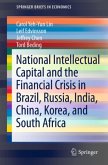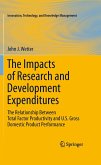Over the past decade, knowledge assets and intellectual capital have been attracting an increasing amount of attention, not only from academics and CEOs, but also from national policy makers. To date, most studies of intellectual capital have focused at the organizational level, with an emphasis on explaining the role of "intangible assets" as a differentiator between accounting value and market value as a possible source of corporate competitive advantage. More recently, pioneers in the field, including the authors of this book, have begun to apply these methodologies to a broader scope, with the objective of comparing the intellectual capital indices at the national or regional level. As a result, an increasing number of world organizations and researchers are commissioned to investigate this future-oriented crucial national issue. Yet, the linkage between the value of intangible assets and how to quantify or benchmark it is still tenuous, not to mention easily misunderstood by a layman for guiding better decision making.
With the belief that numbers talk and statistics hide valuable information, this book serves to present the authors' research findings, covering 14 years (1995-2008) of intellectual capital information, comprised of human capital, market capital, process capital, renewal capital, and financial capital for 40 countries. The last three chapters go beyond analysis of current intellectual capital factors, and present practical tools for launching initiatives at the national level. The book will serve as an essential resource for researchers, policy makers, and business leaders concerned with issues of economic growth and competitiveness, innovation, and business creation.
With the belief that numbers talk and statistics hide valuable information, this book serves to present the authors' research findings, covering 14 years (1995-2008) of intellectual capital information, comprised of human capital, market capital, process capital, renewal capital, and financial capital for 40 countries. The last three chapters go beyond analysis of current intellectual capital factors, and present practical tools for launching initiatives at the national level. The book will serve as an essential resource for researchers, policy makers, and business leaders concerned with issues of economic growth and competitiveness, innovation, and business creation.








